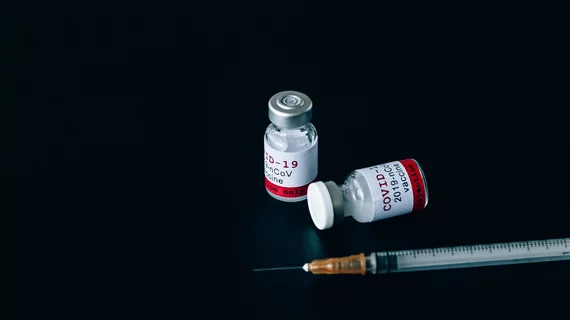COVID-19 vaccines approved for young children
The Food and Drug Administration (FDA) authorized emergency use of two COVID-19 vaccines––manufactured by Moderna and Pfizer-BioNTech––in children as young as six months of age.
The move amends the previous emergency use authorization for the Moderna vaccine to include use of the vaccine in individuals six months through 17 years of age, and the vaccine has been authorized for use in adults 18 years and older. The FDA amended the emergency use authorization for the Pfizer-BioNTech vaccine to include the use of the vaccine in individuals six months through four years of age, as it had already been approved for children five and older.
The vaccines were approved for younger populations after evidence revealed their effectiveness for this group. Data about the Moderna vaccine stems from two ongoing randomized, blinded, placebo-controlled clinical trials in the U.S. and Canada which enrolled infants, children and adolescents. The Pfizer-BioNTech vaccine is also being tracked in an ongoing, randomized, blinded, placebo-controlled clinical trial in the United States and internationally.
Nearly 79% of the U.S. population has received at least one dose of a COVID-19 vaccine, while 67.4% are fully vaccinated, according to Our World in Data. The FDA’s latest approval could help protect young children in school from contracting COVID-19 or from severe illness and hospitalization from the virus.
“Many parents, caregivers and clinicians have been waiting for a vaccine for younger children and this action will help protect those down to six months of age,” FDA Commissioner Robert M. Califf, MD, said in a statement. “As we have seen with older age groups, we expect that the vaccines for younger children will provide protection from the most severe outcomes of COVID-19, such as hospitalization and death. Those trusted with the care of children can have confidence in the safety and effectiveness of these COVID-19 vaccines and can be assured that the agency was thorough in its evaluation of the data.”
The FDA noted that its evaluation and analysis of the safety, effectiveness and manufacturing of the vaccines was “rigorous and comprehensive,” with the agency determining the benefits of the vaccines outweigh potential risks in pediatric populations authorized for use of the vaccines.
The agency tapped its independent Vaccines and Related Biological Products Advisory Committee for the emergency use authorization, and the committee voted in support.
Both the Moderna and Pfizer-BioNTech vaccines require two doses to be effective. The Moderna vaccine is administered in two doses one month apart. Additionally, a third booster dose has been authorized at least one month following the second dose for individuals 6 months through 17 years of age who have been determined to have certain kinds of immunocompromise.
Similarly, the Pfizer-BioNTech vaccine is administered as a primary series of three doses, with the initial two doses administered three weeks apart, followed by a third dose administered at least eight weeks after the second dose in individuals six months through four years of age.
“As with all vaccines for any population, when authorizing COVID-19 vaccines intended for pediatric age groups, the FDA ensures that our evaluation and analysis of the data is rigorous and thorough,” Peter Marks, MD, PhD, director of the FDA’s Center for Biologics Evaluation and Research, said in a statement. “In addition to making certain the data for these vaccines met FDA’s rigorous standards, the agency’s convening of an advisory committee was part of a transparent process to help the public have a clear understanding of the safety and effectiveness data supporting the authorization of these two vaccines for pediatric populations.”
The FDA and the Centers for Disease Control and Prevention (CDC) previously identified an increased risk for myocarditis––inflammation of the heart muscle–– and pericarditis––inflammation of tissue surrounding the heart––following vaccination with both the Moderna and Pfizer-BioNTech vaccines, particularly after the second dose. The presence of these conditions is more prevalent among males 18 through 24 years of age for the Moderna COVID-19 vaccine and in males 12 through 17 years of age for the Pfizer-BioNTech COVID-19 Vaccine. However, most cases are characterized as rapid onset with conservative management with no impact on quality of life.

